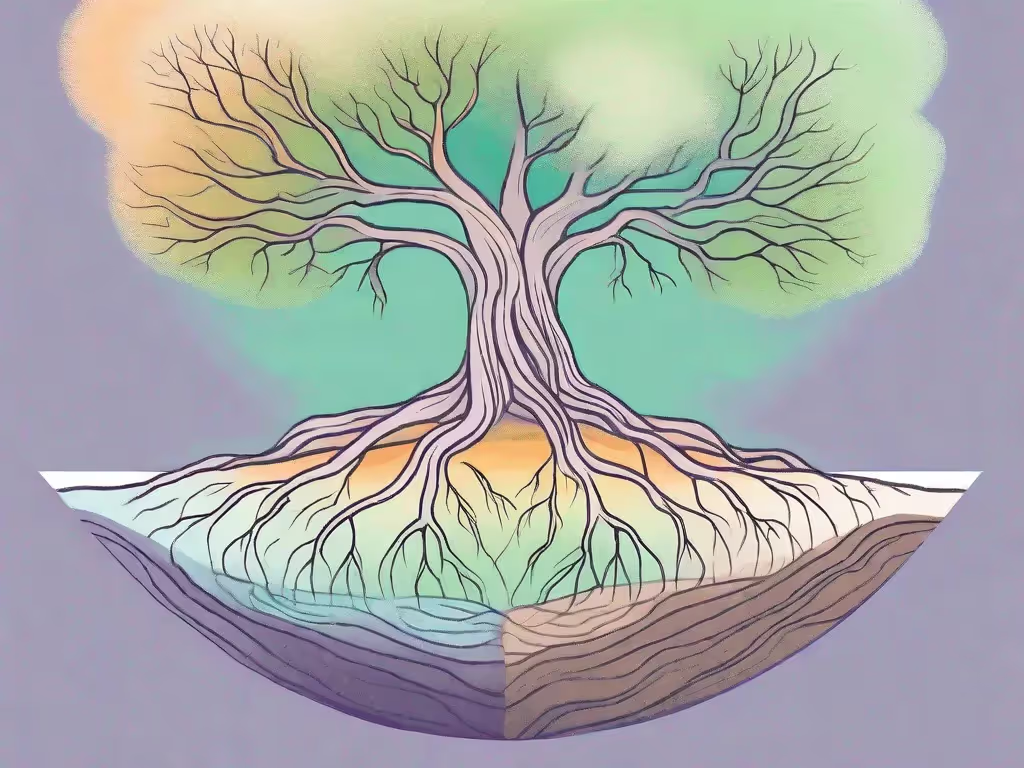Are you tired of feeling overwhelmed by anxiety but struggle to put your emotions into words? You're not alone. Anxiety can be a challenging emotion to describe. That's why we've curated a list of 10 synonyms for anxiety to help you better express your feelings. By understanding the different aspects and nuances of anxiety, you can begin your journey towards managing and overcoming it. Let's dive in and explore the various synonyms to unlock a deeper understanding of your emotions.
Understanding Anxiety and Its Impact
Anxiety is a complex emotion that affects millions of people worldwide. From a psychological perspective, it is a feeling of unease, worry, or apprehension about current or future events. Anxiety can manifest itself in various ways, influencing our thoughts, emotions, and behaviors. It's essential to recognize its impact on our daily lives to find effective strategies for overcoming it.
The Psychological Perspective of Anxiety
In the realm of psychology, anxiety is often viewed as an excessive and uncontrollable fear response triggered by perceived threats. These threats can be real or imagined, but the emotional and physical symptoms they elicit are undeniable. Understanding the psychological basis of anxiety can empower you to regain control over your emotions and live a more fulfilling life.
When it comes to anxiety, the brain plays a significant role. The amygdala, a small almond-shaped structure in the brain, is responsible for processing emotions, including fear and anxiety. When a threat is perceived, the amygdala sends signals to other parts of the brain, such as the hypothalamus and the pituitary gland, triggering the release of stress hormones like cortisol and adrenaline. These hormones prepare the body for a fight-or-flight response, increasing heart rate, blood pressure, and alertness.
Furthermore, anxiety can be influenced by genetic factors, environmental triggers, and past experiences. Some individuals may have a genetic predisposition to anxiety disorders, making them more susceptible to developing anxiety in response to certain situations. Environmental factors, such as a stressful upbringing or traumatic events, can also contribute to the development of anxiety. Understanding these underlying factors can help individuals gain insight into their anxiety and work towards managing it effectively.
How Anxiety Affects Daily Life
Anxiety has the power to infiltrate every aspect of your daily routine. It can cast a dark shadow on your relationships, work productivity, and overall sense of well-being. From experiencing difficulty sleeping to feeling on edge throughout the day, anxiety limits your ability to fully engage with life's joys. By recognizing the ways anxiety impacts your daily life, you can begin to take proactive steps towards managing it.
One significant way anxiety affects daily life is through its impact on relationships. Anxiety can make it challenging to form and maintain deep connections with others. Constant worry and fear can lead to social withdrawal, making it difficult to engage in social activities or meet new people. Additionally, anxiety can cause individuals to seek constant reassurance from their loved ones, putting strain on relationships and creating a cycle of dependency.
Work productivity is another area greatly affected by anxiety. When anxiety takes hold, it becomes challenging to focus and concentrate on tasks. Thoughts become scattered, and decision-making becomes more difficult. This can lead to decreased efficiency and effectiveness in the workplace, potentially impacting career growth and professional satisfaction.
Moreover, anxiety can significantly impact one's overall sense of well-being. Constant worry and fear can lead to physical symptoms such as headaches, muscle tension, and digestive issues. The emotional toll of anxiety can result in feelings of sadness, irritability, and a general sense of being overwhelmed. It can diminish one's quality of life, making it challenging to find joy and fulfillment in everyday activities.
Recognizing the impact of anxiety on daily life is the first step towards finding effective strategies for managing it. By seeking professional help, practicing relaxation techniques, and making lifestyle changes, individuals can regain control over their lives and find a sense of peace and calmness amidst the chaos of anxiety.
The Importance of Expressing Your Feelings
When it comes to mental health, communication is key. Expressing your feelings not only fosters connection with others but also promotes self-awareness and emotional well-being. By exploring the role of communication in mental health, you can harness the power of your words to nurture your mind and soul.
The Role of Communication in Mental Health
Effective communication serves as a bridge to better mental health. The ability to share your fears, concerns, and anxieties with trusted individuals can provide validation and support. Cultivating open and honest dialogue can help alleviate the burden of anxiety and create a sense of relief and understanding.
The Therapeutic Power of Words
Words possess an extraordinary ability to heal and empower. By actively using language to describe your emotions, you gain a better understanding of yourself and your experiences. Writing or speaking about your anxiety can help you process your feelings, gain perspective, and develop coping strategies to manage it.
Exploring Synonyms for Anxiety
Now, let's delve into the heart of our journey - exploring the ten synonyms for anxiety that will help you express your complex emotions with more clarity.
Synonym 1: Apprehension - A Closer Look
Apprehension embodies a sense of unease, anticipation, and caution. It is an emotion that arises when faced with the uncertain and the unknown. By recognizing apprehension as a synonym for anxiety, you can better articulate the specific aspects of your emotions and gain a sense of control over them.
Synonym 2: Unease - Understanding Its Nuances
Unease refers to a general feeling of discomfort or restlessness. It's that persistent sense that something isn't quite right, yet you can't pinpoint the exact cause. Identifying unease as a synonym for anxiety allows you to delve deeper into your emotions and find ways to alleviate this sense of disquiet.
Synonym 3: Worry - Its Relation to Anxiety
Worry is a common emotion often associated with anxiety. It involves repetitive thoughts and concerns about potential problems or negative outcomes. By recognizing worry as a synonym for anxiety, you can better identify when your thoughts spiral into unproductive patterns and develop strategies to redirect them towards more positive and constructive reflections.
Synonym 4: Nervousness - A Common Manifestation
Nervousness encapsulates the jitters and butterflies in your stomach that arise in unsettling situations. It's that feeling of heightened sensitivity and anticipation before an important event. By acknowledging nervousness as a synonym for anxiety, you can better navigate situations that trigger these emotions and develop techniques to calm your nerves.
Synonym 5: Tension - The Physical Aspect of Anxiety
Tension refers to the physical sensations that often accompany anxiety. It's that tightness in your chest, the knots in your stomach, or the clenched muscles in your body. Identifying tension as a synonym for anxiety enables you to recognize the physical manifestations of your emotions and seek strategies to release and relax your body.
Synonym 6: Panic - When Anxiety Peaks
Panic is an intense and overwhelming emotion that often occurs during high-stress situations. It's that feeling of losing control and the desperate need to escape or find relief. Recognizing panic as a synonym for anxiety empowers you to identify triggers that lead to these heightened reactions and develop personalized coping mechanisms.
Synonym 7: Fear - The Primal Response
Fear is a primal and instinctual emotion that often lies at the core of anxiety. It's that visceral reaction to perceived threats or danger. Acknowledging fear as a synonym for anxiety allows you to explore the roots of your anxious feelings and address the underlying causes.
Synonym 8: Dread - Anxiety's Darker Side
Dread captures the sense of foreboding and apprehension that accompanies anxiety. It's the feeling of unease that persists even when everything seems fine. By recognizing dread as a synonym for anxiety, you can delve into the deeper layers of your emotions and develop strategies to combat this sense of impending doom.
Synonym 9: Stress - The Everyday Anxiety
Stress is a synonym for anxiety that many can relate to. It encompasses the pressures and demands of daily life that can be overwhelming and exhausting. Recognizing stress as a synonym for anxiety helps you identify and address the everyday triggers that contribute to your anxious feelings, allowing you to cultivate a more balanced and resilient mindset.
Synonym 10: Agitation - The Restless Side of Anxiety
Agitation refers to a state of restlessness and irritability often linked to anxiety. It's that constant feeling of being on edge and unable to relax. By acknowledging agitation as a synonym for anxiety, you can uncover the restless aspects of your emotions and employ techniques to find calm amidst the chaos.
By exploring these synonyms for anxiety, you gain a wider vocabulary to express and understand the intricate nuances of your emotions. Remember, the first step to managing anxiety is self-awareness. Recognize and embrace your feelings, and then seek the support and resources that align with your needs.
At Aura Health, we understand the importance of mental health and the journey towards emotional well-being. Our app provides a safe space for you to explore and manage your anxiety. With a variety of guided meditations, personalized exercises, and supportive community, Aura Health is here to help you navigate your emotions and find peace. Let us join you on your path to a more fulfilling and balanced life. Download the Aura Health app today and start your transformative journey.
Aura is Your All In One App for Meditation, Mindfulness Wellbeing
Find peace every day with one app for your whole well-being. There is no one-size-fits-all solution to mental well-being. Aura is the first all-in-one wellness app that learns how to best help you. Discover an endless library of expert-created tracks for your well-being, all taught by the world’s best coaches, therapists, and storytellers. With Aura's personalized recommendations, you can find peace every morning, day and night.



.webp)






.avif)

%20(1).avif)


.avif)
.avif)
.webp)


.avif)


















































































































.avif)

















.svg)









